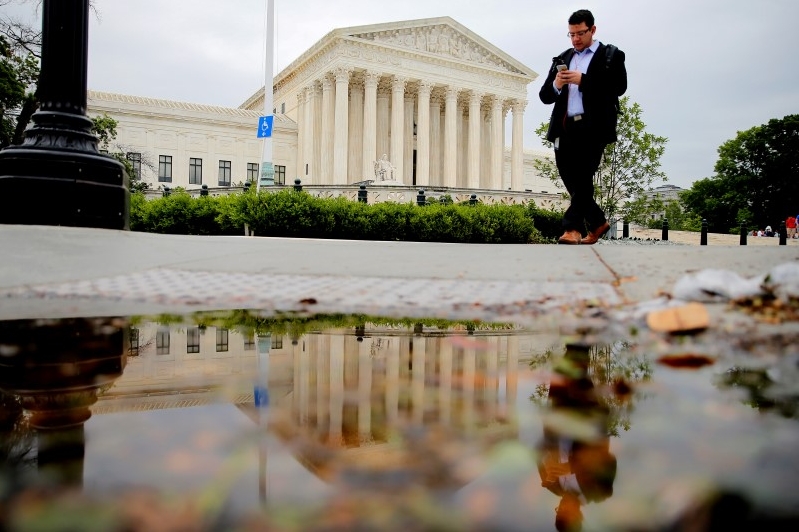
Justice Samuel A. Alito Jr. has warned that the Supreme Court's decision to turn away an appeal by a family-owned pharmacy that cited Christian beliefs in objecting to providing emergency contraceptives to women under a Washington state rule is an "ominous sign" for those who value religious freedom.
On Tuesday, the justices declined to grant an appeal in the case of Stormans v. Wiesman, which involves Christian pharmacists suing Washington over a law mandating that pharmacies provide contraceptives despite conscience objections.
Reuters notes that three conservatives among the eight justices - Justice Samuel Alito, joined by Chief Justice John Roberts and Justice Clarence Thomas - argued that the court should have agreed to hear the appeal by the Stormans family, which owns Ralph's Thriftway grocery story and pharmacy in Olympia.
"If this is a sign of how religious liberty claims will be treated in the years ahead, those who value religious freedom have cause for great concern," Alito warned in his 15-page retort.
Alito argued that the rule, adopted by the Washington Board of Pharmacy (now the Pharmacy Commission), singled out people of faith to deny their freedom.
"There are strong reasons to doubt whether the regulations were adopted for - or that they actually serve - any legitimate purpose," Alito wrote. "And there is much evidence that the impetus for the adoption of the regulations was hostility to pharmacists whose religious beliefs regarding abortion and contraception are out of step with prevailing opinion in the State."
The Supreme Court's decision effectively leaves the decision of the appeals court in place, forcing the Stormans and other pro-life pharmacy owners to either sell abortion-inducing drugs or go out of business.
"The dilemma this creates for the Stormans family and others like them is plain: Violate your sincerely held religious beliefs or get out of the pharmacy business," Alito wrote, adding the pharmacy's petition was supported by several dozen pharmacist organizations that urged the Supreme Court to take up the case.
"Ralph's has raised more than slight suspicion that the rules challenged here reflect antipathy toward religious beliefs that do not accord with the views of those holding the levers of government power," Alito concluded.
The Alliance Defending Freedom, a law firm that represented the Stormans, also expressed disappointment at the denial.
"Americans should be free to peacefully live and work consistent with their faith without fear of unjust punishment, and no one should be forced to participate in the taking of human life," said ADF Senior Counsel Kristen Waggoner.
"We had hoped that the U.S. Supreme Court would take this opportunity to reaffirm these long-held principles. The state of Washington allows pharmacists to refer customers for just about any reason - except reasons of conscience," she stated.
"Singling out people of faith and denying them the same freedom to refer is a violation of federal law. All 49 other states allow conscience-based referrals, which are fully supported by the American Pharmacists Association, the Washington Pharmacy Association, and more than 34 other pharmacy associations. Not one customer in Washington has been denied timely access to any drug due to a religious objection."







